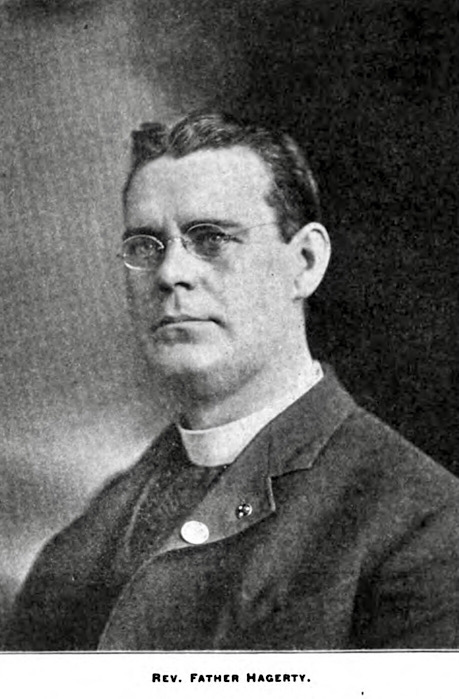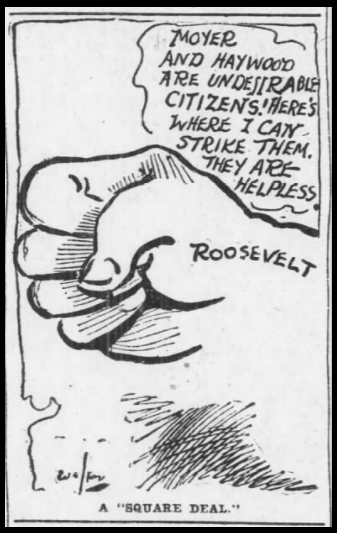 —————
—————
Hellraisers Journal – Saturday October 4, 1902
“How I Became a Socialist” by Father Thomas Joseph Hagerty
From The Comrade of October 1902:
How I Became a Socialist.
VII. [of Series]
By Rev. T. [J]. HAGERTY.
A CONVICTION grew upon me in my boyhood days-which has broadened and deepened with the out-going years—that human nature is inherently good. In the old Hebraic records, composite of earlier documents which register the world’s notion of creation, I was caught by the reiteration of the idea of the goodness of all things. The after-development of tribe and nation, however, seems to give the lie to this primal verity. Prophets and philosophers in the cuneiform script and Vedic hymn of Egypt and India, singers and sculptors in the psalm and glistening marble of Palestine and Greece, throughout the centuries have sought to keep alive the sense of goodness in the brain of man. Yet all the time murder and rapine, disease and wretchedness flaunted denial in the face of truth. Pariah, slave, and bond-servant groaned in hopeless toil the while Kung-fu-sdu and Gotamma the Buddha proclaimed kindness and justice and David and Homer sang of high emprise.
Christianity came, with a catholic breadth of goodness, teaching the brotherhood of man, gathering up the treasures of foregoing ages wherewith to enrich the race, and sending messengers of peace through all the turbulent highways in every land. Far-reaching deeds of love marked its growth in palace and hovel: yet the clash of swords and the snarl of the slave-driver’s lash broke in upon its holiness; and, ever and anon, hunger drove some mother to insane slaughter of the anæmic babe at her breast. The rich in high places rose up against a Savonarola and a Sir Thomas More and tried to silence the reproach of their goodness in death:
“And in such indexes, although small pricks
To their subsequent volumes, there is seen
The baby figure of the giant mass
Of things to come at large.”Within reach of every banquet’s savor crouched the gaunt figure of Poverty; and the shadows of the Universities swept athwart the bleak paths of Ignorance and intensified the darkness. Gradually, through all the travail of the earth’s growth, came the machine to lift the burden from the straining muscles of men; and its only effect was to change the servitude of the many into an equally galling wage-slavery without surcease of misery and hate and crime. Meanwhile, the inherent goodness of human nature asserted itself in large heroism and patient bravery. Republics were builded out of the strength of the common people; and fine philosophies of liberty were engrossed upon the parchment of history, but humanity failed to reach the heights where gladness holds her breathing-places. The goodness of human nature seemed to be spent in the Sisyphus-like task of rolling some needless burden up the hill of Time and falling ever backward to the bottom in a futile renewal of toil.
As I read the annals of civilization in books and traced their later chapters in field and shop and factory, my early conviction of the inherent goodness of human nature was sharpened by its contrast with the physical evils everywhere so blatant. I saw the tragic waste of life wherewith the commerce of to-day stands crimsoned in the blood of the proletariat. I noticed little children slowly murdering by the loom and sewing-machine. In the disease-sodden tenements of the slums I saw hundreds of men and women dragging out a living death their lives foreshortening by the vilest adulteration of food and drink and by the foul air and reeking bodies of their fellow-men in the low, narrow rooms in which they huddled together. Drunkenness, insanity, and sexual perversions were all too common: nevertheless self-sacrifice, kindness, and wondrous patience were equally in evidence.


